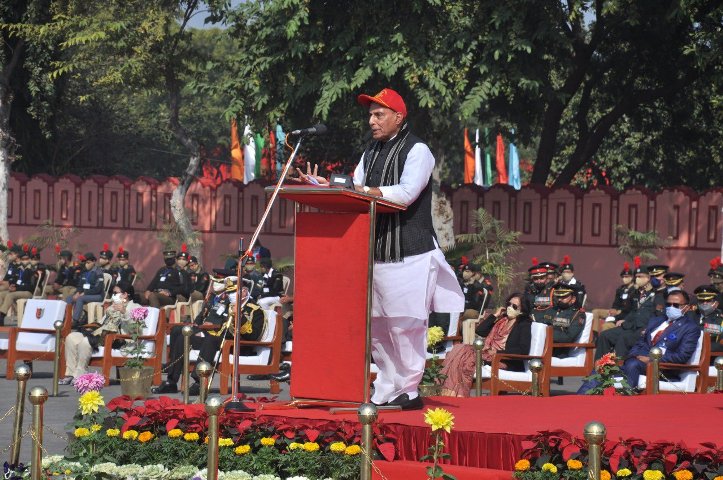India, China agree to pull back troops from disputed Himalayan lake
India and China have agreed to pull back troops from a bitterly contested lake area high in the western Himalayas, the Indian defence minister said on Thursday, in a breakthrough after a months-long standoff on the disputed border.
Reuters | Updated: 11-02-2021 11:32 IST | Created: 11-02-2021 11:30 IST
India and China have agreed to pull back troops from a bitterly contested lake area high in the western Himalayas, the Indian defence minister said on Thursday, in a breakthrough after a months-long standoff on the disputed border. Rajnath Singh told parliament the accord had been reached after several rounds of talks between military commanders and diplomats from the nuclear-armed neighbours.
"Our sustained talks with China have led to agreement on disengagement on the north and south banks of the Pangong lake," he said. China's defence ministry said frontline troops from the two countries had begun to pull back from the shores of the lake on Wednesday.
The standoff began in April last year when India said Chinese troops had intruded deep into its side of the Line of Actual Control or the de facto border in the Ladakh area in the western Himalayas. China said its troops were operating in its own area and accused Indian border guards of provocative actions.
In June, 20 Indian soldiers were killed when the two sides clashed with iron rods and stones in the Galwan Valley, the first combat losses on the border in 45 years. China also suffered an unspecified number of casualties. Singh said the Indian government had told Beijing that peace and tranquility had been seriously disturbed by the actions of Chinese troops and bilateral ties had suffered.
"To ensure disengagement in friction points along the LAC, it was our view that troops of both sides, who are now in close proximity, should vacate the forward deployments made in 2020 and return to the permanent and accepted bases," he said. Once the disengagement has been completed at the high altitude Pangong lake, military commanders will meet within 48 hours to discuss pull back from other areas, Singh said.
India and China fought a war in 1962 and since then have not been able to agree on their 3,500 km (2,200 mile) long border.
(This story has not been edited by Devdiscourse staff and is auto-generated from a syndicated feed.)
ALSO READ
Cricket-Fans cleared of racially abusing India bowler Siraj - report
Look forward to working with Biden administration: Indian ambassador
Pro-Khalistan group gathers in Washington in support of Indian farmers
Indian High Commission celebrates 72nd Republic Day in Canada
UPDATE 1-Cricket-Australia confirms India players subjected to racial abuse

